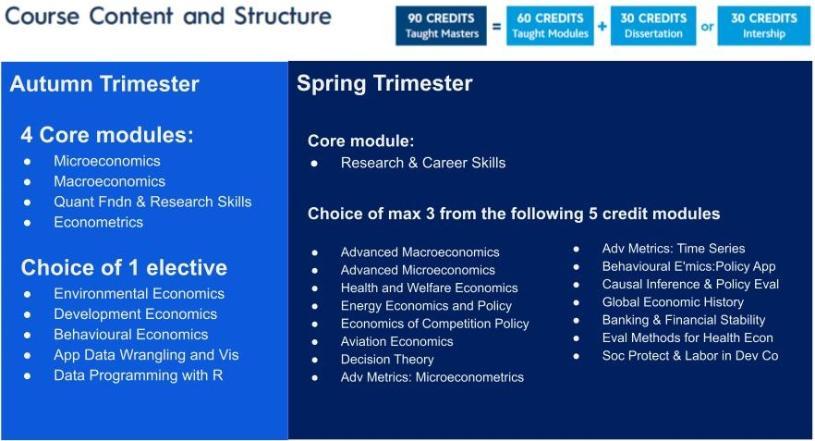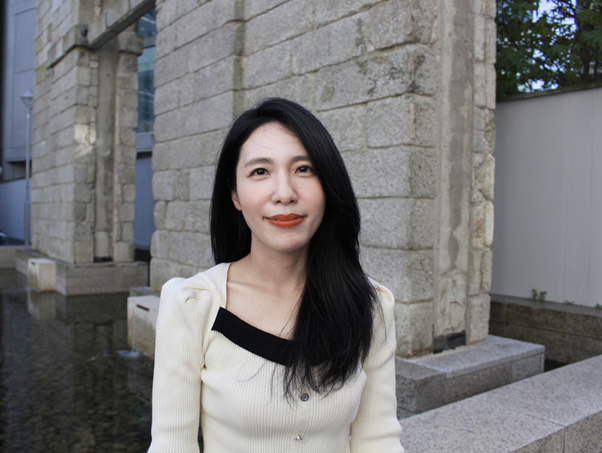MSc in Applied Economics
MSc in Applied Economics
Deepen your economics knowledge to address the problems and policy issues facing today’s society
- Applications for the 2025/26 are accepted on a rolling basis from October 1st and will close on 31st of August 2025.
- For information on fees and how to apply, please click here. For scholarships/fee waivers please check here.
- We also encourage applications for part-time study. See here for more information.
This course provides advanced training in economics with a focus on applications to real-world problems. The course is ideal preparation for a career as a professional economist working on applying economics to policy issues or business situations. In addition to studying core modules in microeconomics, macroeconomics and econometrics, students can pick from a wide range of field modules. In the summer term, students do either a supervised research thesis or an internship.
This programme features small-group teaching from leading economists and a supportive environment. Masters students are an integral part of our School community, attending research seminars and receiving a wide range of supports to help them prepare for their research thesis or internship.

UCD School of Economics is Ireland’s leading economics department (and in the top 70 in Europe according to the prestigious (opens in a new window)Tilburg Ranking). Our staff are experts with international reputations in a wide range of topics such as macroeconomics, econometrics, applied microeconomics, behavioural economics, health economics, international trade, and economic history. School members play a significant role in debating economic policy issues and in contributing to the formulation of economic policy. Students get to know our staff via participation in small classes and seminars and through direct supervision.
Applied Economics Video Gallery
Career Opportunities
Graduates of our masters programmes move to jobs in central banks, think-tanks, government departments, regulatory agencies, financial sector institutions and consultancy firms.
Some have also gone on to complete PhDs in economics and pursue successful careers as academic or research economists. Past employers of MSc in Applied Economics graduates include: Irish Government Economic and Evaluation Service (IGEES), Central Bank of Ireland, Economic and Social Research Institute, Competition and Consumer Protection Commission, KPMG, Accenture, Novartis, EnvEcon Decision Support Ltd, Deloitte, Grant Thornton, Davy Group, Indecon International consultants, Central Statistics Office, and other leading national and international organizations and companies.

For the full list of modules and what you will learn, see here
Entry Requirements
- A primary degree with at least an upper second class honours or international equivalent in Economics or in a degree in which Economics is a major component
OR
- An upper second class honours in a Higher Diploma in Economics or in the MSc Qualifier.
- Applicants whose first language is not English must also demonstrate English language proficiency. A full list of the Minimum English Language Requirements can be found here
- For scholarships/fee waivers please check here and here
Programme Coordinator Dr Oana Peia (opens in a new window)oana.peia@ucd.ie

I really enjoyed the program and I have since started work as a Research Assistant in the Macroeconomics team of the ESRI. The programme benefits from being taught by an experienced faculty with subject-specific expertise.



